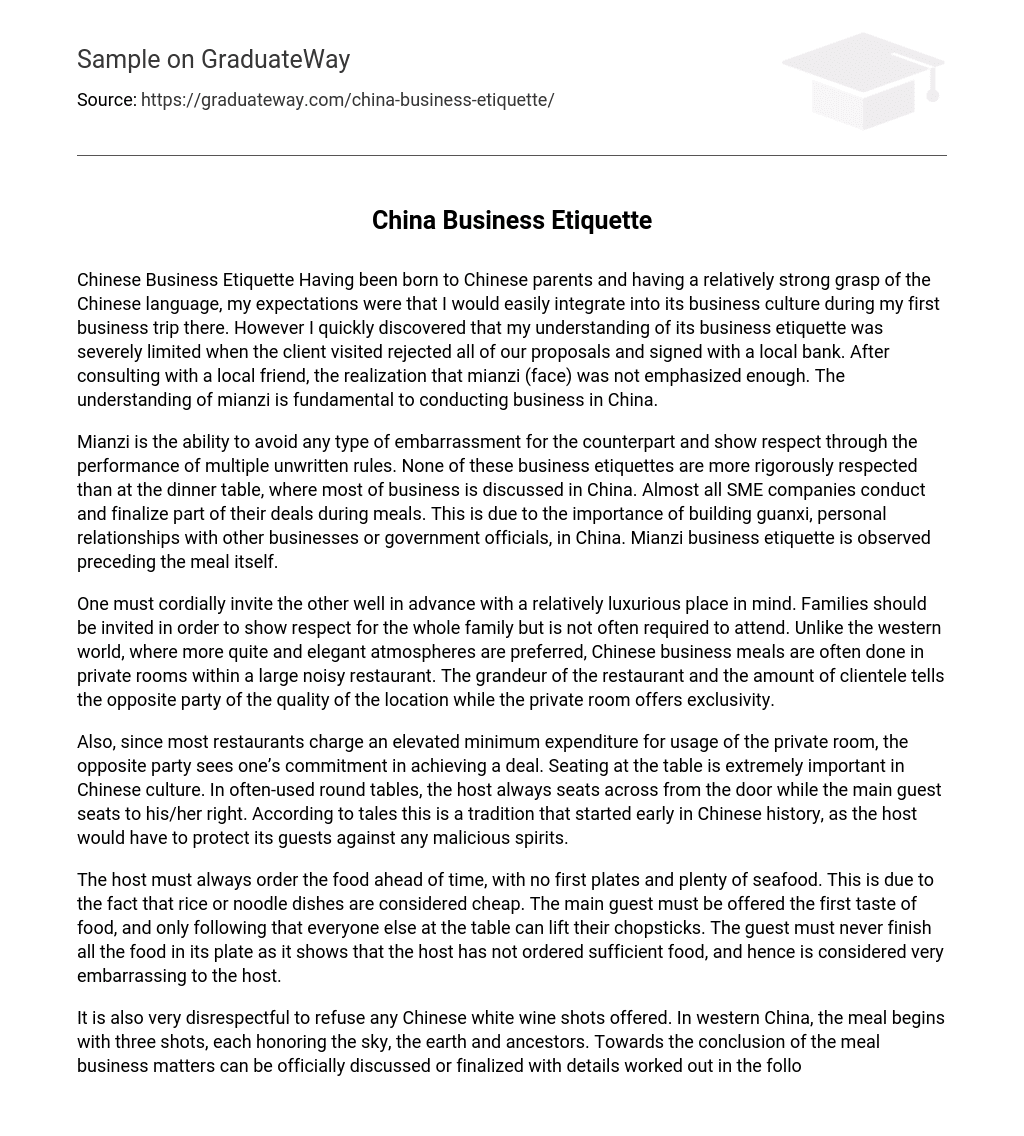Chinese Business Etiquette I thought that because I had Chinese parents and could speak Chinese relatively well, I would have no problem fitting in with the business culture during my first trip to China. But when our client rejected all of our proposals and chose to work with a local bank, I realized that I had a limited understanding of Chinese business etiquette. After talking to a local friend, I learned that the concept of mianzi (face) was not given enough importance. Understanding mianzi is crucial for conducting business in China.
Mianzi is the practice of showing respect and avoiding embarrassment for others through the adherence to unwritten rules. In China, these rules are particularly important during business meals, where a majority of business matters are discussed. Small and medium-sized enterprises (SMEs) often finalize deals during these meals as it helps to build guanxi, which refers to personal relationships with other businesses or government officials in China. The observance of Mianzi business etiquette begins before the meal itself.
When hosting a Chinese business meal, it is important to extend a warm invitation in advance, with a focus on selecting a relatively upscale venue. Including the invitee’s family is a gesture of respect, although their attendance is not obligatory. In contrast to Western customs, Chinese business meals are typically held in private rooms within bustling restaurants. The impressive size and popularity of the restaurant reflect the high standards of the location, while the private room adds an exclusive touch to the dining experience.
In Chinese culture, seating at the table is crucial, especially in private rooms at restaurants where there is usually a higher minimum expenditure required. This demonstrates the commitment of the opposite party to reaching a deal. The tradition of seating arrangements on round tables dates back to early Chinese history, with the host sitting opposite the door and the main guest sitting to their right. This positioning is thought to protect the guests from harmful spirits according to tales.
The host must always pre-order the food, ensuring there are no first courses and an ample amount of seafood. This is because rice or noodle dishes are considered inexpensive. The primary guest should be given the initial sample of food, after which everyone else at the table can begin eating. It is important for the guest to not finish all the food on their plate, as this indicates that the host did not order enough food, which can be extremely embarrassing for them.
It is considered disrespectful to decline any Chinese white wine shots that are offered. In western China, the meal starts with three shots, each representing the sky, the earth, and ancestors. Towards the end of the meal, business matters can be discussed or finalized, with further arrangements made in the subsequent days. Gifts are exchanged, with cigarettes or wine being the most preferred options. If there are children present, they are given a hongbao (red bag) containing money.
Gifts to government officials are typically not given during the dinner itself but are instead delivered to their private residences at a later date. The evening concludes with the host escorting the guest to their car, although it is also customary to continue the night at a karaoke bar if discussions were fruitful. The guest is not involved in the payment process as it is seen as embarrassing for them. While business meals are prevalent worldwide, having knowledge of Chinese business etiquette during such occasions is crucial for success.





